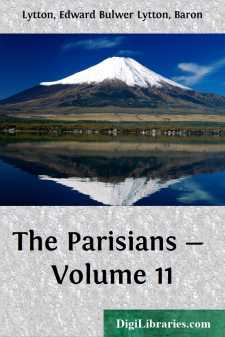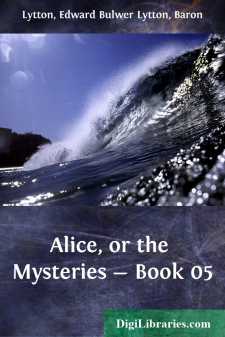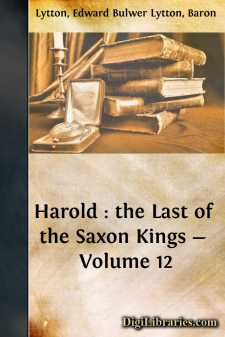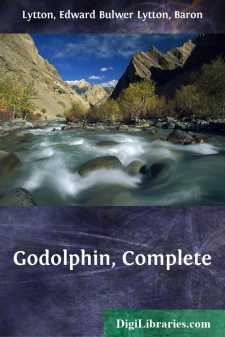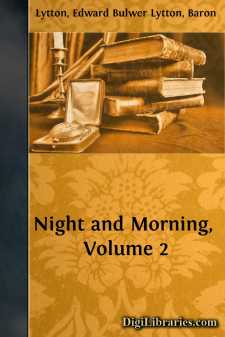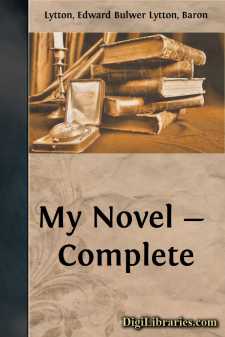Categories
- Antiques & Collectibles 13
- Architecture 36
- Art 48
- Bibles 22
- Biography & Autobiography 815
- Body, Mind & Spirit 144
- Business & Economics 28
- Children's Books 18
- Children's Fiction 14
- Computers 4
- Cooking 94
- Crafts & Hobbies 4
- Drama 346
- Education 58
- Family & Relationships 59
- Fiction 11833
- Games 19
- Gardening 17
- Health & Fitness 34
- History 1378
- House & Home 1
- Humor 147
- Juvenile Fiction 1873
- Juvenile Nonfiction 202
- Language Arts & Disciplines 89
- Law 16
- Literary Collections 686
- Literary Criticism 179
- Mathematics 13
- Medical 41
- Music 40
- Nature 179
- Non-Classifiable 1768
- Performing Arts 7
- Periodicals 1453
- Philosophy 65
- Photography 2
- Poetry 896
- Political Science 203
- Psychology 44
- Reference 154
- Religion 515
- Science 126
- Self-Help 85
- Social Science 82
- Sports & Recreation 34
- Study Aids 3
- Technology & Engineering 59
- Transportation 23
- Travel 463
- True Crime 29
Edward Bulwer Lytton Lytton
Edward Bulwer Lytton (1803–1873) was a prominent English writer, politician, and playwright, known for his prolific output in various literary genres. He authored the famous opening line "It was a dark and stormy night" in his novel "Paul Clifford" (1830) and popularized phrases such as "the pen is mightier than the sword." Lytton also served in the British Parliament and held the title of 1st Baron Lytton, significantly influencing Victorian literature and politics.
Author's Books:
Sort by:
CHAPTER XVIII. The streets swarmed with the populace troops as they passed to their destination. Among those of the Mobiles who especially caught the eye were two companies in which Enguerrand de Vandemar and Victor de Mauleon commanded. In the first were many young men of good family, or in the higher ranks of the bourgeoisie, known to numerous lookers-on; there was something inspiriting in their gay...
more...
CHAPTER I. Do as the Heavens have done; forget your evil; With them, forgive yourself.—The Winter's Tale. . . . The sweet'st companion that e'er man Bred his hopes out of.—Ibid. THE curate of Brook-Green was sitting outside his door. The vicarage which he inhabited was a straggling, irregular, but picturesque building,—humble enough to suit the means of the curate,...
more...
Chapter I. I am a native of _____, in the United States of America. My ancestors migrated from England in the reign of Charles II.; and my grandfather was not undistinguished in the War of Independence. My family, therefore, enjoyed a somewhat high social position in right of birth; and being also opulent, they were considered disqualified for the public service. My father once ran for Congress, but...
more...
Harold's Accession. There are, as is well known, two accounts as to Edward the Confessor's death-bed disposition of the English crown. The Norman chroniclers affirm, first, that Edward promised William the crown during his exile in Normandy; secondly, that Siward, Earl of Northumbria, Godwin, and Leofric had taken oath, "serment de la main," to receive him as Seigneur after...
more...
"Of course—I understand, and entirely agree with you. But if the man retract all threats, confess his imposture in respect to this pretended offspring, and consent to retire for life to a distant colony, upon an annuity that may suffice for his wants, but leave no surplus beyond, to render more glaring his vices, or more effective his powers of evil; if this could be arranged between Mr. Poole...
more...
CHAPTER XXVIII. There is that in a wedding which appeals to a universal sympathy. No other event in the lives of their superiors in rank creates an equal sensation amongst the humbler classes. From the moment the news that Miss Jemima was to be married had spread throughout the village, all the old affection for the squire and his House burst forth the stronger for its temporary suspension. Who could...
more...
CHAPTER I. Say, ye oppressed by some fantastic woes, Some jarring nerve that baffles your repose, Who press the downy couch while slaves advance With timid eye to read the distant glance, Who with sad prayers the weary doctor tease To name the nameless, ever-new disease, Who with mock patience dire complaints endure, Which real pain and that alone can cure, How would you bear in real pain to lie...
more...
CHAPTER I. THE DEATH-BED OF JOHN VERNON.—HIS DYING WORDS.—DESCRIPTION OF HIS DAUGHTER, THE HEROINE.—THE OATH. "Is the night calm, Constance?" "Beautiful! the moon is up." "Open the shutters wider, there. It is a beautiful night. How beautiful! Come hither, my child." The rich moonlight that now shone through the windows streamed on little that it could invest with poetical...
more...
CHAPTER I. "Incubo. Look to the cavalier. What ails he? . . . . . Hostess. And in such good clothes, too!" BEAUMONT AND FLETCHER: Love's Pilgrimage. "Theod. I have a brother—there my last hope!. Thus...
more...
INITIAL CHAPTER —SHOWING HOW MY NOVEL CAME TO BE WRITTEN. Scene, the hall in UNCLE ROLAND'S tower; time, night; season, winter. MR. CAXTON is seated before a great geographical globe, which he is turning round leisurely, and "for his own recreation," as, according to Sir Thomas Browne, a philosopher should turn round the orb of which that globe professes to be the representation and...
more...


